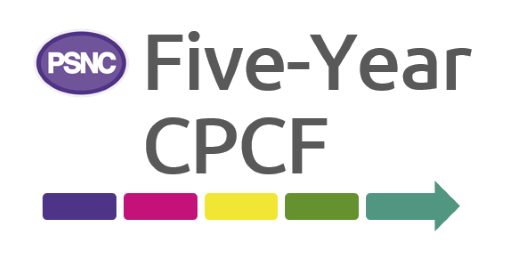PSNC Planning Meeting: Renewed evidence drive and Year 4 negotiations
PSNC met at the end of last month (November 24th and 25th) To both consider the ongoing pressures facing the community pharmacy sector and to plan for upcoming negotiations with the Department of Health and Social Care (DHSC) and NHS England and NHS Improvement (NHSE&I).
The next round of negotiations, which we expect to begin soon, will set the arrangements for the Community Pharmacy Contractual Framework (CPCF) in 2022/23 – Year 4 of the five-year CPCF deal.
Our ambition is to complete them in time for April so that contractors can have notice of the arrangements prior to the beginning of the financial year. Achieving this has been a long-held aim of PSNC, DHSC and NHSE&I, but progress has been delayed by the COVID-19 pandemic.
At its meeting, PSNC Members explored the key issues for community pharmacy businesses at the moment, including workforce, funding, efficiencies and capacity, and services and patient demand for healthcare advice. Further information on what the Committee discussed is outlined below.
Workforce
Contractors are increasingly struggling to recruit staff and pharmacists, and many have reported a worrying rise in their wages bill. Some pharmacies have also been forced to close where pharmacists are not available. PSNC Members were very concerned about the extreme pressure this is putting on contractors as they battle to stay open, and also about the significant rises in wages which contractors cannot continue to absorb.
We expect this to be a critical topic in our upcoming negotiations on Year 4 of the five-year CPCF deal and will continue to raise this with Government, seeking financial help for contractors and also a flexible and supportive approach from NHSE&I. But, as the cross-sector Workforce Development Group has already identified – there are not going to be any easy, short-term fixes, and this will require long-term effort from across the sector, NHS and Government.
Funding
PSNC considered the ongoing funding squeeze that contractors are experiencing, particularly rising costs over which they have no control and which, unlike other businesses, they cannot pass on to consumers. This is putting unsustainable pressure on pharmacy businesses.
PSNC Members were clear that despite the rejection of our most recent bid for an uplift to the CPCF funding, we must seek further funds for contractors over the next year. PSNC’s Negotiating Team will consider how best to do this, but work has already started to look at contractors’ increasing costs.
Efficiencies and Capacity
Community pharmacies already operate very efficiently. PSNC’s assessment is that by the end of Year 4 of the five-year deal, if the services commissioned to date grow at assumed rates, and on top of efficiencies driven by funding reductions made in 2016, community pharmacies will have had to absorb efficiencies of at least 37% compared against a 2015 baseline.
In this context, PSNC Members considered very carefully the likely challenge that many pharmacies simply would not have capacity to take on more services during the upcoming financial year. The Committee also looked at possible ways to release capacity within the sector.
PSNC has been really frustrated that work that was supposed to help pharmacies to free up capacity through the five-year CPCF deal has not yet been delivered.
Services and patient demand for advice
The two Pharmacy Advice Audits completed over the past 18 months have shown the high number of people who are walking into pharmacies seeking advice on minor conditions or with their existing health conditions. Reports from contractors show that this trend is continuing, with an increasing number of people with more serious conditions coming to pharmacies when they cannot access GPs.
PSNC’s view is that these ‘walk-ins’ must be fully funded, and we will be making the case for this as part of the upcoming negotiations. This should link in with discussions on expanding the role that pharmacists can play in helping people with minor conditions, including through wider use of patient group directions (PGDs), as recently identified as a priority by the Secretary of State for Health and Social Care.
Other discussion points
PSNC also considered the Annual Review of the CPCF on which more information should be available soon. And the Committee heard the latest Review Steering Group thinking about the future of both national and local community pharmacy representation.
To provide critical evidence for use in the upcoming negotiations and longer-term discussions with Government, including a likely further funding bid, PSNC is preparing for a further round of evidence-gathering from contractors. This will include the launch of a contractor pressures survey, and a repeat, in the New Year, of the PSNC Advice Audit. Further details will be announced soon.
Meetings of PSNC subcommittees have also recently been held. A short summary of these can be read here
PSNC Vice-Chair, and independent contractor, Bharat Patel said:
All Committee Members arrived at this PSNC meeting bringing concerns and anecdotes about the very difficult situation that many contractors now find themselves in, whether from a financial perspective, or because of the acute workforce and capacity challenges. We are all very worried about the outlook for pharmacies as we head into a difficult winter.
This reality is what we need to tackle in the upcoming negotiations on year 4 of the five-year deal, and this was our focus for the two days: working together, to find answers and ways forward. Contractors need be in no doubt that we will be bringing proposals for additional funding and support, particularly around the treatment of ‘walk-in’ patients, to the table, along with a heavy dose of realism for Government and the NHS about the current challenges in the sector.
Once again, we expect a very difficult round of discussions. But we are optimistic about the Secretary of State’s call for pharmacies to be empowered to better support people with minor conditions, and determined to leverage the incredible support that pharmacies continue to provide for both their local communities and the wider NHS.









